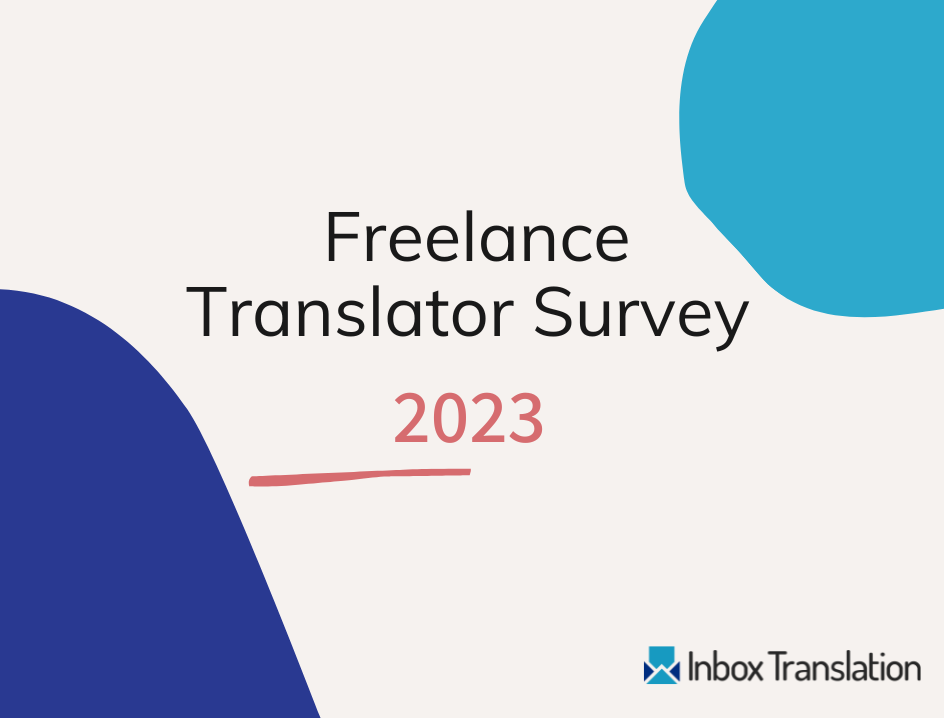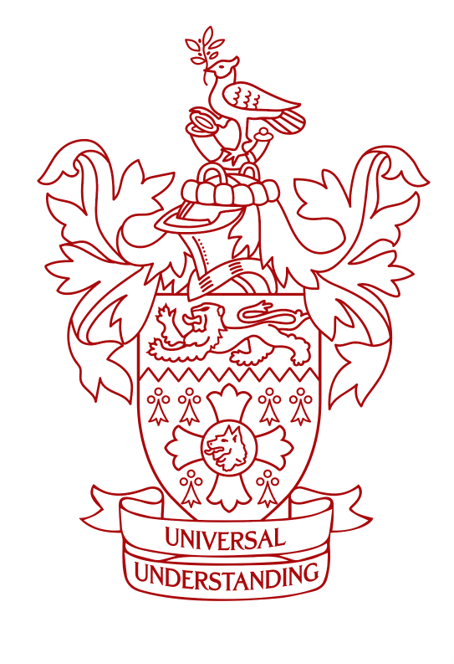Introduction
The Inbox Translation Freelance Translator Survey 2023 is based on a worldwide survey carried out by Inbox Translation in collaboration with the Institute of Translation and Interpreting (ITI) in 2023. The purpose of the survey was to better understand the translation profession and the people working within it. This is a follow-up to a previous survey of freelance translators, conducted in 2020 with support from CIOL, which means it is possible to track the changes in findings over time.
A total of 2,803 freelance translators took part in the 2023 survey. When asked to indicate which country they are currently based in, a total of 107 countries of residence covering all continents were mentioned by the 1,725 respondents who provided this information.
Highlights
Inbox were interested in finding out about the educational backgrounds of freelance translators, and asked respondents to indicate which of a list of higher educational qualifications they hold (they could tick more than one). the chart below shows the percentage of respondents with each type of qualification:
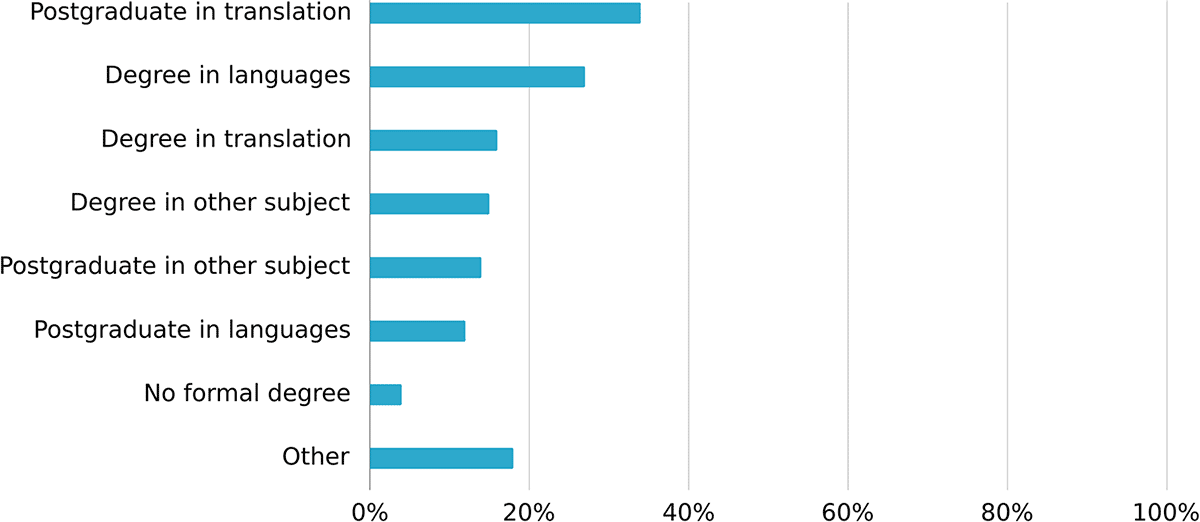
The survey asked respondents whether they use computer-assisted translation (CAT) tools in their work, and the distribution of responses is shown below. Again, the findings were very similar to the 2020 survey results: most of the 2023 respondents (81%) indicated that they use CAT tools at least some of the time, with 59% of translators using CAT tools frequently, and 19% never using such tools:
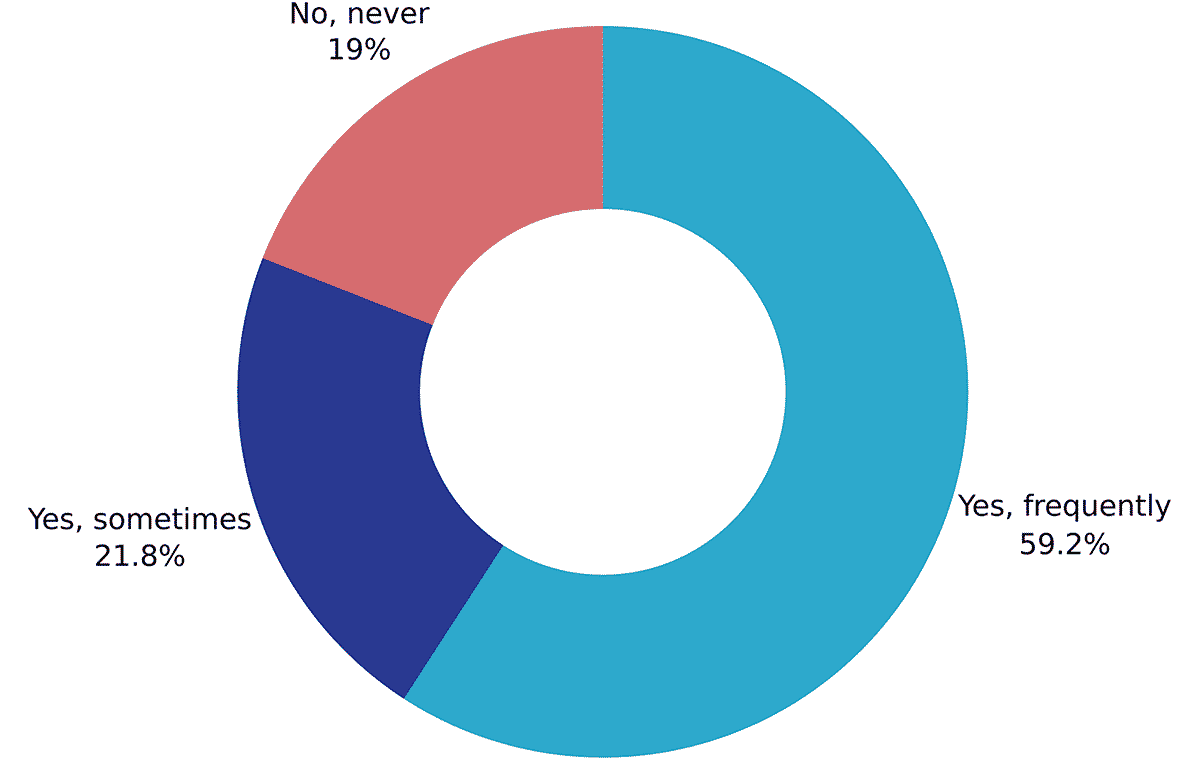
The main perceived benefit of being a freelance translator is freedom/flexibility (cited by 82% of respondents). However, in terms of challenges, almost 2 out of 3 translators struggle with low rates of pay. Low rates of pay were also the most commonly cited challenge in 2020, experienced by 59% of respondents in both 2020 and 2023. In 2023 this was followed by “the increasing use of machine translation” which was mentioned by 31% of respondents compared with 27% in 2020, and “difficulties in securing work”, mentioned by 30% in 2023 compared with 32% in 2020. The newly included factor, “knowing how to market myself to ideal clients” was reported to be a challenge by 27% of respondents in 2023. “Delays in payment”, cited by 22% of the 2020 survey respondents, was mentioned by just 16% in 2023:
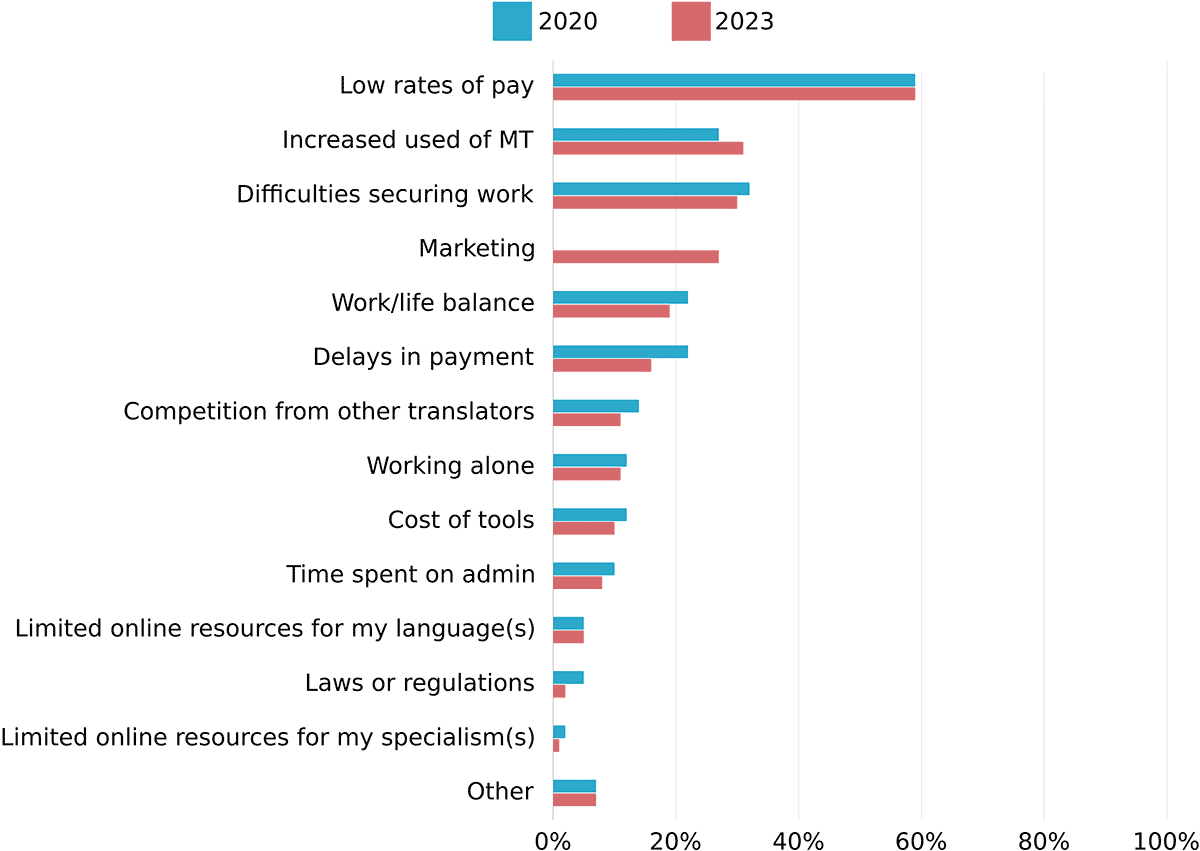
76% of translators who are members of a professional translation body like CIOL, consider professional recognition as the main benefit.
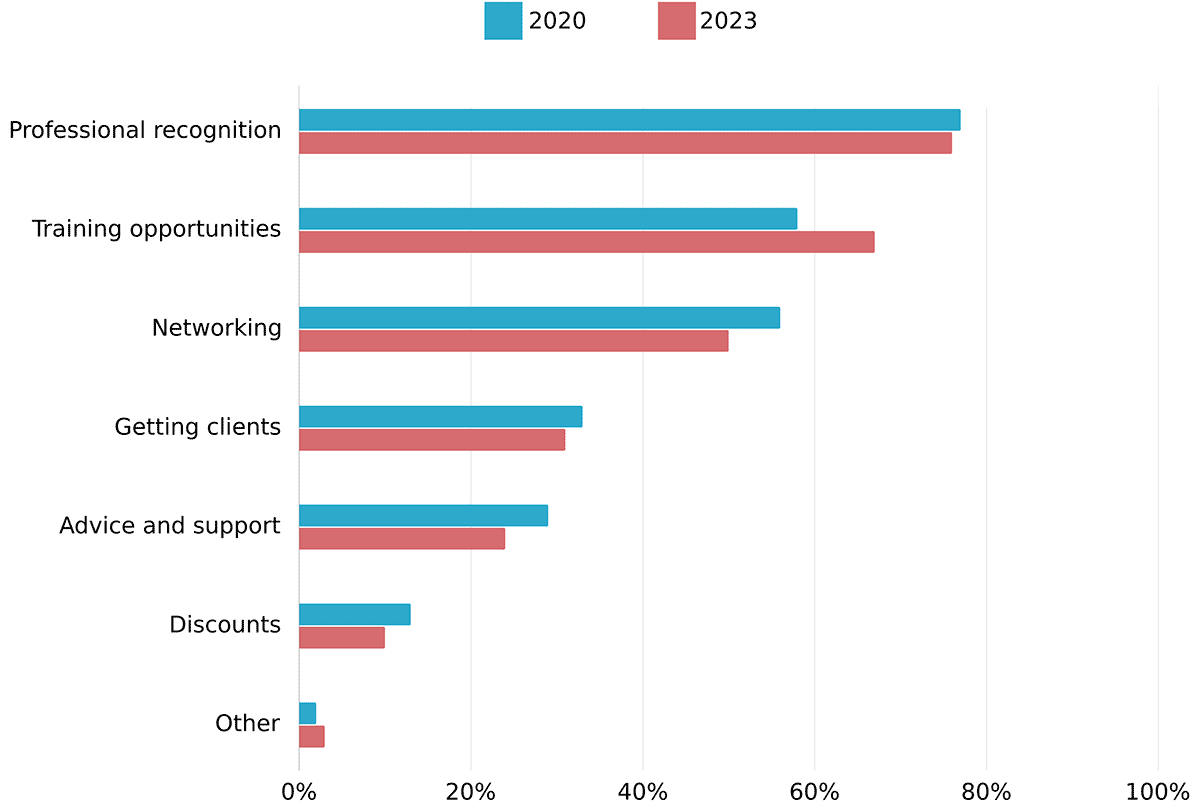
The survey revealed that, while there is little difference between translator only, translator and interpreter, translator and provider of other services or education, the highest earners have more experience (92% have more than 10 years’ experience vs 41% of low earners), specialise (only 3% don’t specialise vs 18% of low earners), work full-time (with 24% reporting working 50 hours or more per week, while 38% of low earners work less than 8 hours a week), use CAT tools more (89% vs 72%), 81% of them are members of a professional translation body (while 49% of low earners are), 64% have a website (compared to 22% of low earners). More men than women are in the highest earners category, though we have to take into account the small number of respondents.
The biggest differences in terms of rates were observed when comparing those charged by members of professional associations and those who do not belong to one. On average, members charge 44% more (between 22% and 75% more) than non-members.
Expert Views
Alina Cincan, Managing Director Inbox Translation said:
“The results of the 2023 edition of the survey confirm most of the findings of the 2020 edition, and being able to compare trends and to present translators with actual figures they can use in assessing their business is what this project has always been about. While some of the figures are not particularly encouraging (the fact that two thirds of translators struggle with low rates of pay), there are lots of other findings that paint a more positive image of our profession. Whichever side you find yourself on, we hope the data will help you on your journey.”
Dom Hebblethwaite, Head of Membership CIOL said:
“There is a wealth of data and insight in Inbox Translation's survey. It is important that CIOL supports work like this and highlights the findings more widely. The information on trends in fees and charging will be particularly valuable to CIOL members, showing as they do that Members of translation associations charge, on average 44% more than those who do not belong to a professional body. We look forward to working with Alina and Inbox Translation on surveys in the future.”
Sara Crofts, CEO of ITI said:
"The data highlights the challenges that freelance translators are facing, and so there is a great deal of value for individuals in being able to compare their own practices with those of their peers. It is, of course, disappointing that so many in the profession struggle with low rates of pay, but ITI is committed to working with colleagues at CIOL to increase our advocacy work in a bid to shine a spotlight on the important role of professional, human translators."
See the full findings on the Inbox Translation website

